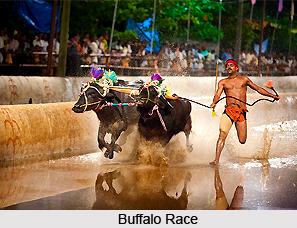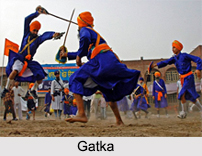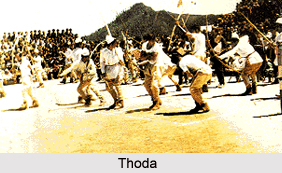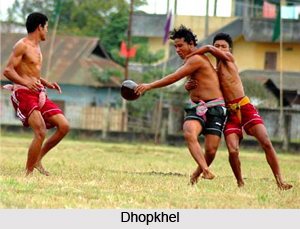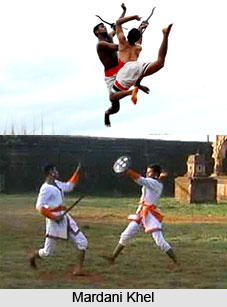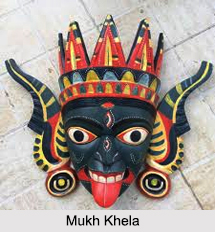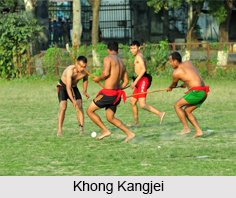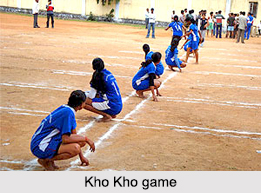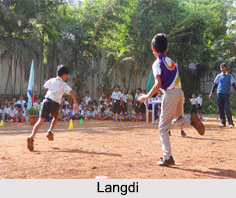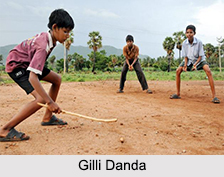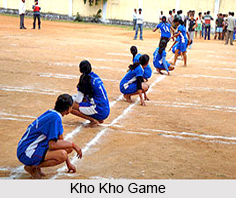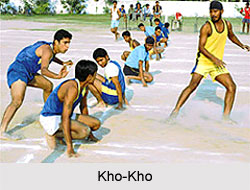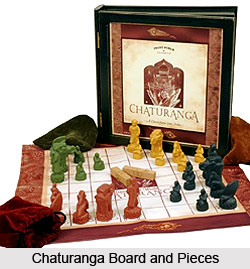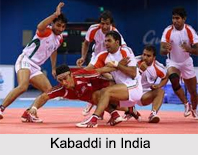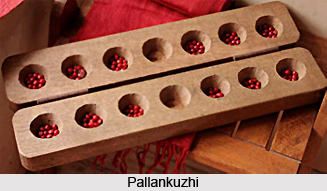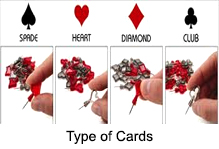 Types of playing cards in India vary with multiple rounds and tricks of play. Each of the players plays a single card from hand, and based on the value of the card played, one player wins or takes the trick. There are specific objects to each game and includes taking as many tricks as possible, and also taking as many scoring cards within the tricks won as possible. Bridge, Whist, Euchre, Spades, and the various Tarot card games are popular examples.
Types of playing cards in India vary with multiple rounds and tricks of play. Each of the players plays a single card from hand, and based on the value of the card played, one player wins or takes the trick. There are specific objects to each game and includes taking as many tricks as possible, and also taking as many scoring cards within the tricks won as possible. Bridge, Whist, Euchre, Spades, and the various Tarot card games are popular examples.
Matching Games
The main idea of matching games, melding or Rummy is to acquire the required groups of matching cards before an opponent can do so. In matching game this done through discarding and drawing, and the groups are known as melds. Mahjong is a more or less same that is played with tiles instead of cards. Non-Rummy examples of match-type games generally fall into the "fishing" genre and include the children`s games Go Fish and Old Maid.
Shedding Games
In this type of card game players begin with hand of cards and the objective of the game is to be the first player to discard all cards from one`s hand. Some matching-type games are also shedding-type games; some variants of Rummy such as Phase 10 and Rummikub, as well as the children`s game Old Maid, fall into both categories.
Accumulating Games
The main aim of this game is to acquire all cards in the deck. Some example includes most war type games, and games that involve slapping a discard pile. Egyptian War has both of these features.
Fishing Games
In this type of game the cards from hand are actually played against cards in a layout on the table, thus capturing table cards if they match. Fishing games are famous in many nations. Scopa is considered as the national game of Italy and Cassino is the only fishing game to be extensively played in English speaking counties.
Comparing Games
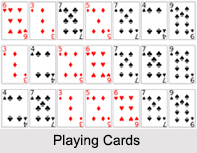 In this game the hand values are compared in order to determine the winner. It is also known as "Showdown" or "vying" games. Games like blackjack, poker and baccarat are examples are comparing card games.
In this game the hand values are compared in order to determine the winner. It is also known as "Showdown" or "vying" games. Games like blackjack, poker and baccarat are examples are comparing card games.
Solitaire (Patience) Games
Patience games are structured or designed by one player. In most cases the game begin with particular layout of cards, called tableau, and the object is then either to construct a more elaborate final layout, or to clear the tableau and/or the draw pile or stock by moving all cards to one or more "discard" or "foundation" piles.
Drinking Card Games
Drinking card games are true to their names, a subset of drinking games using cards in which the object in playing the game is either to drink or to force others to drink. Many games are ordinary card games with the establishment of "drinking rules"; Asshole (Presidents), for instance, is nearly equal to Daihinmin but with added rules governing drinking. Poker game can also be played using a number of drinks as the wager. Another game often played as a drinking game is Toepen, quite popular in the Netherlands. Some card games are made and designed specially to be played as drinking games.
Multi-Genre Games
There are indeed many games that borrow ideas from more than one game. The common combination is that of shedding and matching, as in some variants of Rummy, Old Maid and Go Fish. But, many multi-genre games actually involve various stages of play for each hand. The common multi stage combination is "trick-and-meld" game, such as Pinochle or Belote. Some other multi genre, multi stage games include Poke, Flaps, Skitgubbe and Tichu. Vici is an example of a multi-genre card game which unites elements of 5-card hands and coning techniques from poker, with gathering and matching strategies from rummy and certain partnering aspects from bridge.
Collectible Card Games (CCGs)
This particular game is defined by usage of decks of proprietary cards that vary between players. The major contents of these decks are subsets of large pool of available cards that have varying costs, effects and art. A player collects his or her deck through purchase or trade for desirable cards, and each player uses their own deck to play against the other.
Casino or Gambling Card Games
These games actually depend on wager of money. Although any game that involves loss or win can be wagered on, these games are specifically designed to make the process of betting a strategic part of the game. Some of these games actually involve betting against each other, like poker. But in others like blackjack, players wager against the house.
Poker Games
This is a family of gambling game where a player bet into a pool known as pot, that the value of their hand will beat all others according to the ranking system. Modification largely depends differ on how cards are dealt and the method by which players can enhance a hand. This is one of the most universally played card games.
Ganjifa
Ganjifa is a card game or type of playing cards that are mostly associated with Persia and India. After Ganjifa cards fell out of use in Iran before the twentieth century, India became the last country to produce them. Ganjifa is prevalent in Odisha as "Ganjapa". Ganjifa cards were bought first by the Mughal Emperors from their ancestral homeland in Inner Asia. A key reference comes from an early 16th century biography of Babur, the founder of the Mughal dynasty. In his work the Baburnama, Emperor Babur notes in the year 933H that he had a pack of "Ganjifa" cards sent to Shah Hassan.
